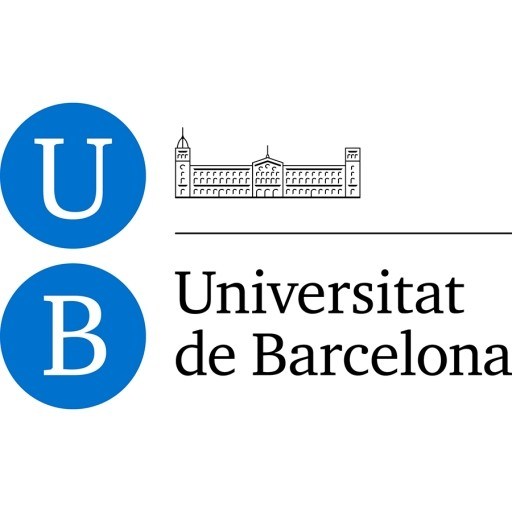Photos of university / #unibarcelona
This master's degree provides advanced training in different areas of physics, focusing particularly on fundamental theoretical aspects, computational methods, experimental techniques and their applications. The course takes a generalist approach that consolidates and builds on the training received at undergraduate level and prepares students for doctoral studies or professional life.
The course has been designed to meet the growing need for graduates with advanced training in physics, who have the skills to tackle and solve problems in many different fields through the use of advanced technologies and innovative methods and strategies.
Of the total study load of 60 credits, 18 correspond to compulsory subject areas, 18 to optional subject areas, and 24 to the Final Project. Students may also select optional subjects with a total study load of up to 12 credits from other master's degrees.
The compulsory and optional subject areas are listed below (note that each subject area may contain one or more subjects):
COMPULSORY SUBJECT AREAS:
- Applied Quantum Mechanics
- Further Studies in Statistical Physics
- Spectroscopic and Characterization Techniques
OPTIONAL SUBJECT AREAS:
- Material Physics and Advanced Devices
- Topics in Statistical Physics and Condensed Matter
- Themes in Theoretical Physics
No specializations are offered.
Subject to the approval of the coordinator, students may select optional subjects with a total study load of up to 12 credits from other master's degrees, in particular those taught at the Faculty of Physics (Astrophysics, Particle Physics and Cosmology; Nanoscience and Nanotechnology; Nuclear Physics; Biophysics; Meteorology, etc.). These programmes cover advanced aspects of physics that serve as a useful complement to the content of the master's degree. In particular, students may like to consider the following subjects:
- Elementary Particles
- Advanced General Relativity
- Nuclear Astrophysics
- Nanomagnetism and Spintronics
- Experimental Techniques in Biophysics
- Physical Meteorology
Requirements
- An official Spanish degree.
- A degree issued by a higher education institution within the European Higher Education Area framework that authorizes the holder to access university master's degree courses in the country of issue.
- A qualification from outside the framework of the European Higher Education Area. In this case, the qualification should be recognized as equivalent to an official Spanish degree. If it is not recognized, the University of Barcelona shall verify that it corresponds to a level of education that is equivalent to official Spanish degrees and that it authorizes the holder to access university master's degree courses in the country of issue. Admission shall not, in any case, imply that prior qualifications have been recognized as equivalent to a Spanish master's degree and does not confer recognition for any purposes other than that of admission to the master's degree course.
- Candidates must hold a bachelor's degree or equivalent undergraduate degree in physics, physical engineering or a closely related discipline.
- Students with degrees other than the 240-credit bachelor's degree in Physics may also be eligible, provided that they have a similar level of training in mathematics and physics to holders of physics degrees. The Coordination Committee may require these students to take additional bridging courses with a total study load of up to 30 credits.
- Academic record for previous studies
- Statement of interest
- Curriculum vitae
- Students who are interested in taking the specialization in international economic law must have at least a B2 level of English, as this specialization is taught entirely in English.
Scholarships
- General grant
- Mobility grant – Erasmus
- UB collaboration grant
- Departmental collaboration grant (MECD)
- MAEC-AECID grants
- Financial aid for participation in international mobility programs
- UB grants for exchanges with foreign universities
- UB grants for Els Juliols summer courses
- Drac Program grants
- Ajuts de matrícula per als estudiants amb circumstàncies personals sobrevingudes
The Advanced Physics program at the University of Barcelona is a comprehensive postgraduate degree designed to deepen students' understanding of fundamental and applied physics. This program provides a rigorous curriculum that covers a wide range of topics, including theoretical physics, experimental techniques, computational methods, and emerging areas such as quantum mechanics, condensed matter physics, particle physics, and astrophysics. It aims to equip students with both the theoretical knowledge and practical skills necessary for research and development roles in academia, industry, and research institutions.
The program typically spans one year for full-time students and may include coursework, laboratory work, seminars, and a research project or thesis. Students have the opportunity to engage with leading researchers and participate in cutting-edge experiments and projects, fostering an environment of innovation and inquiry. The curriculum often includes modules on advanced classical and quantum mechanics, electromagnetism, statistical mechanics, and mathematical methods in physics. Additionally, courses may cover computational physics, data analysis, and software tools essential for modern scientific investigations.
Students enrolled in the Advanced Physics program also benefit from the university’s strong connections with scientific research centers and industry partners, facilitating internships, collaborative projects, and conferences. This exposure enhances employability and prepares graduates for careers in scientific research, technological innovation, education, or further doctoral studies.
Admission to the program generally requires a completed bachelor's degree in physics or a closely related field, with a strong academic record and motivation for research. The university promotes an international learning environment, welcoming students from diverse backgrounds, and often offers courses in English to accommodate international applicants.
Throughout the course of study, students are encouraged to develop critical thinking, problem-solving abilities, and scientific communication skills. The university also emphasizes the importance of ethical considerations in scientific research and innovation. Graduates from the Advanced Physics program are well-equipped to contribute significantly to scientific advancements and technological progress, both locally and globally.
Overall, the Advanced Physics program at the University of Barcelona offers an in-depth and versatile education in physics, blending theoretical foundations with practical applications, and preparing students to meet the challenges of contemporary scientific research and industry demands.





